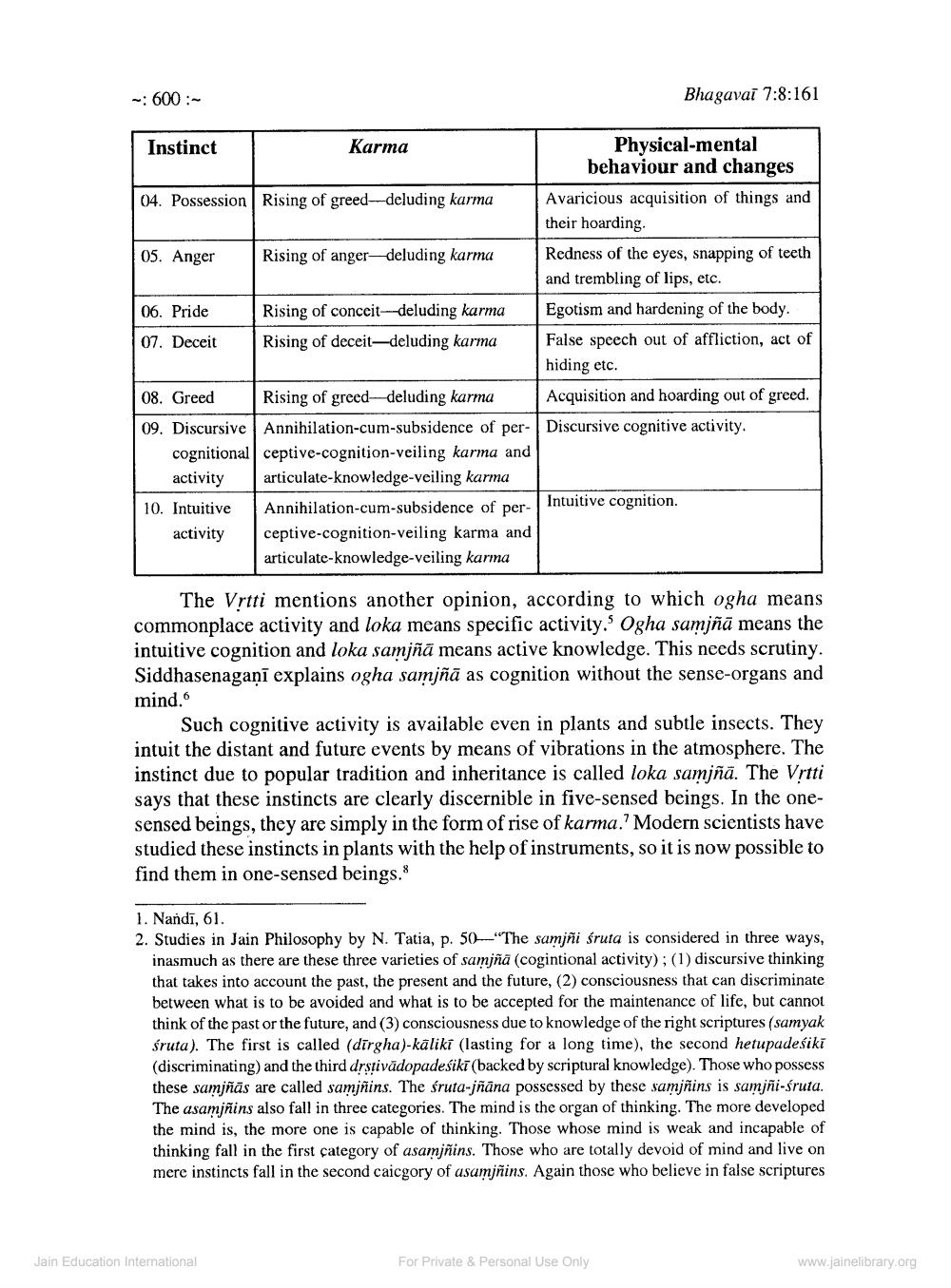________________
- 600:
Bhagavai 7:8:161
Instinct Karma
Physical-mental
behaviour and changes 04. Possession Rising of greed-deluding karma Avaricious acquisition of things and
their hoarding 05. Anger Rising of anger-deluding karma Redness of the eyes, snapping of teeth
and trembling of lips, etc. 06. Pride Rising of conceit-deluding karma Egotism and hardening of the body. 07. Deceit Rising of deceit-deluding karma False speech out of affliction, act of
hiding etc. 08. Greed Rising of greed-deluding karma Acquisition and hoarding out of greed. 09. Discursive Annihilation-cum-subsidence of per- Discursive cognitive activity.
cognitional ceptive-cognition-veiling karma and
activity articulate-knowledge-veiling karma 10. Intuitive Annihilation-cum-subsidence of per- Intuitive cognition. activity ceptive-cognition-veiling karma and
articulate-knowledge-veiling karma
The Vrtti mentions another opinion, according to which ogha means commonplace activity and loka means specific activity. Ogha samjñā means the intuitive cognition and loka samjñā means active knowledge. This needs scrutiny. Siddhasenaganī explains ogha samjñā as cognition without the sense-organs and mind.
Such cognitive activity is available even in plants and subtle insects. They intuit the distant and future events by means of vibrations in the atmosphere. The instinct due to popular tradition and inheritance is called loka samjñā. The Vrtti says that these instincts are clearly discernible in five-sensed beings. In the onesensed beings, they are simply in the form of rise of karma. Modern scientists have studied these instincts in plants with the help of instruments, so it is now possible to find them in one-sensed beings.
1. Nandī, 61. 2. Studies in Jain Philosophy by N. Tatia, p. 50—"The samjñi śruta is considered in three ways,
inasmuch as there are these three varieties of samjñā (cogintional activity): (1) discursive thinking that takes into account the past, the present and the future, (2) consciousness that can discriminate between what is to be avoided and what is to be accepted for the maintenance of life, but cannot think of the past or the future, and (3) consciousness due to knowledge of the right scriptures (samyak Śruta). The first is called (dirgha)-kaliki (lasting for a long time), the second hetupadeśiki (discriminating) and the third drstivādopadesiki (backed by scriptural knowledge). Those who possess these samjñās are called samjñins. The śruta-jñāna possessed by these samjñins is samjñi-śruta. The asamjñins also fall in three categories. The mind is the organ of thinking. The more developed the mind is, the more one is capable of thinking. Those whose mind is weak and incapable of thinking fall in the first category of asamjñins. Those who are totally devoid of mind and live on mere instincts fall in the second caicgory of asumjñins. Again those who believe in false scriptures
Jain Education International
For Private & Personal Use Only
www.jainelibrary.org




